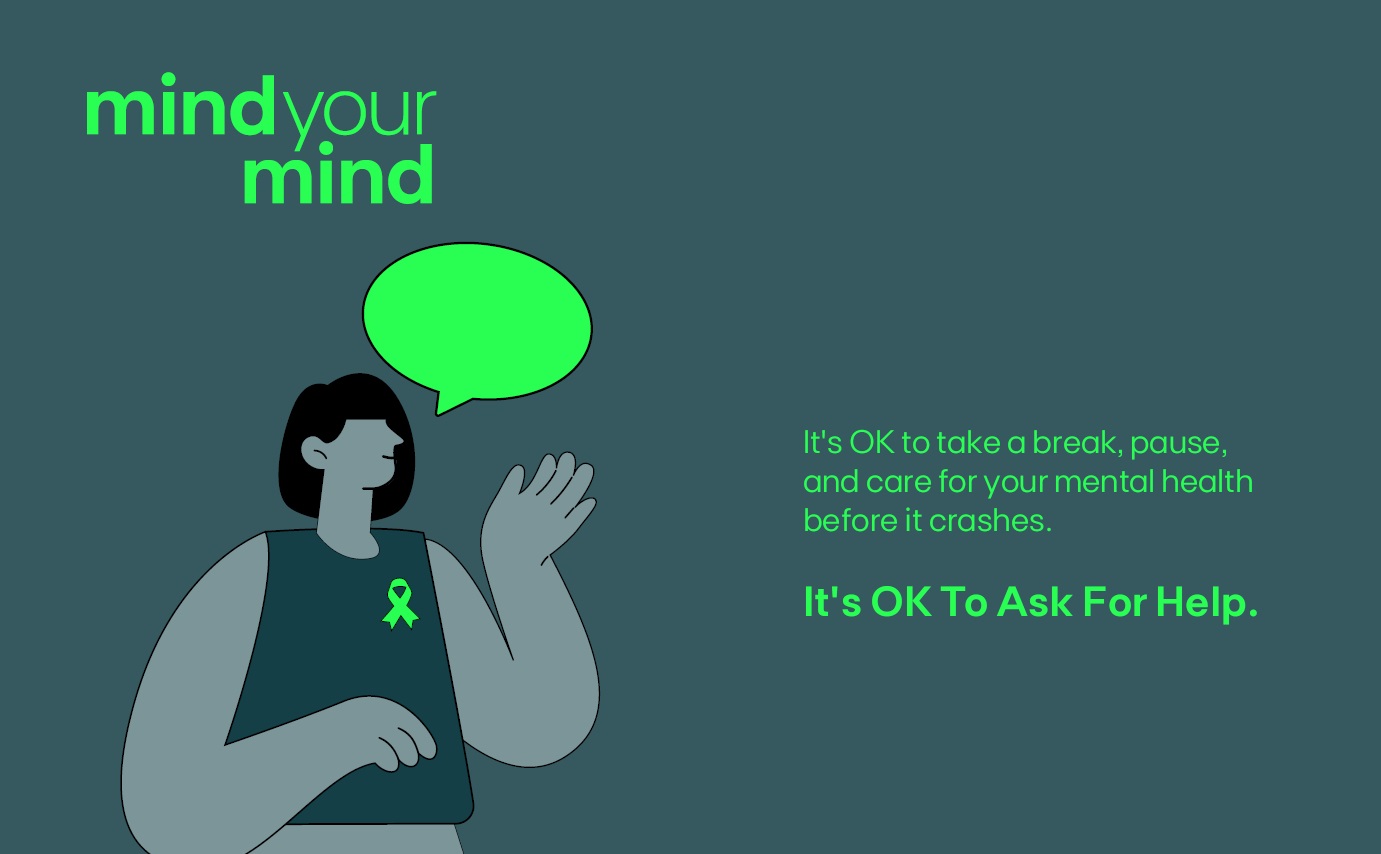Is it OK to feel anxious? In the right amount, experts say Yes.
Dacher Keltner and Lisa Damour, two renowned psychologists who worked on the Inside Out movies, answered EDP’s questions in a recent talk, integrated in the Mind Your Mind Campaign. Empathy, gratitude, listening, addressing emotions, but also resting and taking breaks are keys to dealing with emotions, both at work and outside.
Riley is a 13-year-old girl entering adolescence, sporty and funny, dealing with her emotions, old and new, trying to figure out her place, her role in the world. That couldn’t be further away from our lives and work at EDP, leading the energy transition and fighting for the planet, right? Wrong! Though adolescence can seem like a distant memory, it helped define us, eventually bringing us to our place now, with all emotions still quite active in our mind. That’s the magic of Disney’s Inside Out, it lets us look deep within ourselves, and that’s why we brought psychologists Dacher Keltner and Lisa Damour, consultants to those movies, to an open session with EDP, to talk about emotions, what they teach us, how to deal with them, and why It’s OK to Feel Anxious, whether it’s regarding our work or our personal lives.
“We now recognize that work is emotional. We get anxious, we fight, we bully each other, we love each other, we fall in love. There's just all this emotion happening at the workplace”, sums Dacher Keltner, professor of Psychology at University of California, Berkeley. His message about this vast and deep subject is clear: “Emotions provide the wisdom of the ages, our experiences of emotions tell us what really matters”. And what definitely matters is to experience also ‘bad’ emotions, whether it’s anger, frustration, anxiety, sadness, just always in the right proportion, not getting carried away by them. “Workplaces need to be intelligent about emotions, it's as important as any skill you can cultivate in healthy workplaces and productive work”, describes Dacher.
As Inside Out 2 focuses on the beginning of adolescence, clinical psychologist Lisa Damour was brought in, to help Disney deal with the boiling emotions of this age, her area of expertise. Emotions can boil in adulthood too, especially in the workplace, so Lisa highlights three actions that can help navigate those waters: empathising, listening, and resting. “Empathy starts with listening, and it is hard, so the first thing to do is actually listen”, Lisa explains, “if you have truly listened, you're going to feel empathic, you will understand where the person's coming from in a different way”. This can help unblock anxiety and stressful situations.
Some negative emotions can arise when we work too much or feel guilty that we should be working more. So, in comes the importance of rest. As Lisa puts it: “You go to the gym, you lift heavy weights, and you gain capacity that way. But you can only sustain it if you rest enough to let your muscles recover. So part of how we build resilience is actually protecting recovery”. The psychologist emphasises that “people who are serious about training do not feel bad when they rest their bodies”, and the same applies to work. That brings us back to Dacher, and the science behind emotions: “There are parts of our nervous system like the vagus nerve that are activated and help us rest. And they're activated by emotions like awe and amusement and laughter”.

The importance of a safe workplace environment
EDP has long been actively promoting mental health and well-being at the company with several tools, benefits, and initiatives for the employees. Mind Your Mind, EDP’s internal campaign through which this session was organised, is part of that deep understanding that promoting a safe workspace is crucial for the long-term success of a business. “I'm interested in companies doing preventive policies that reduce overall stress”, Lisa continues, “because we know those really work, and helping employees get access to good care when they need it”. And all this has much to do with expressing emotions, listening to others and supporting them. “If you can create cultures of respect, allow for listening and literacy about emotions at work, which are intense, people do better, sick days are minimised, people get more creative”, the clinical psychologist explains.
Dacher Keltner also highlights the importance of an open workplace regarding this subject: “Even for the hardest of emotions in an organisation, what you have to do is create context for listening. You have to name them”. Naming an emotion, a feeling, saying something when one feels stressed, overwhelmed or frustrated, is the first step to address that same emotion, setting a limit to its reach and consequences.
Most emotions are universally understood
A workplace can also be a melting pot of people, with different interests, life choices and styles, or even cultures. EDP is a great example of workplace diversity, with dozens of nationalities represented in our more than 13.000 employees in the four global regions we are present in, and always promoting the experience of working abroad, whether it’s just for a few weeks or if it’s several years. This can be challenging in terms of communication, in understanding others and dealing with emotions. But Dacher has a reassuring message: “Our research finds that about 50% to 60% of our emotions are universal. So, if you treat people with kindness around the world, they'll feel that, they'll see it, they'll detect it. I've taught in dozens of cultures, and if you teach empathy, and listening, and kindness, and respect, and gratitude, and strength, there's a lot of universality to it”.

Most organisations have a mission or a mission statement. Reminding people of it and holding them to it will be a very good way to have people conduct themselves that are best for both the organisation and the individuals.
Lisa Damour, clinical psychologist and author
On the other hand, different people can bring conflicting ways of thinking and values. That’s why it’s important to set guidelines and define expected behaviours. To Dacher, “We are right at the edge of the challenges of free speech, and the principles of free speech and organisational culture are about managing these hard emotions of conflict”. According to the professor of Psichology, “every organisation has different agreements or principles about speech. You shouldn't shout at people, you shouldn't call them names, you shouldn't dehumanise, you shouldn't use certain kinds of words”. He gives the example of Bob Sutton’s book ‘The No Asshole Rule’, describing 12 behaviours that shouldn’t be allowed in an organisation.
Along with the “civil treatment of one's colleagues”, Lisa Damour points out another action that can promote a good workplace environment: mission statements. “Most organisations have a mission or a mission statement”, Lisa says, “reminding people of it and holding them to it will be a very good way to have people conduct themselves in the ways that are best for both the organisation and the individuals within it”. EDP’s motto is ‘Our energy and heart drive a better tomorrow’, which resonates well with this idea of common good. “What I like about mission statements is that people have signed up for it. This is not being imposed all of a sudden from the outside”, she adds.
The age of emotions in the workplace
The last decades brought a big shift in companies, for the better, and mental health is just one of them. Dacher Keltner states that the business environment “is just more diverse. There are more women in the workforce than there were 60 years ago, radically more, more people of colour, more internationally diverse. And also, you know, we now recognize that work is emotional”.
The pandemic also gave voice to other particular situations, like families, or financial distress, or health issues, or the importance of remote work. “We're seeing companies become much more responsive to challenges and working harder to support people to manage those challenges through things like flexible work schedules, paid time off”, Lisa points out. To the clinical psychologist, “people have different demands that really threaten to overwhelm them with stress, and companies can create policies that do make a huge difference in terms of making those things manageable”. This is also something EDP is constantly working on, with several options and benefits available for different situations.
Cultivating emotional intelligence
It all comes down to how we deal with our emotions and use them to our advantage, which reflects in our daily actions and what we contribute to others. A workplace is more than a desk and chair; it’s built on communication, teamwork, and a common purpose. As Dacher Keltner notes, “we know that at work, if you have strong ties of friendship, you rise in status and get closer to areas of innovation”. According to Keltner, this represents a major shift in organisational life: “it’s like a family in ways, it’s like a community, it should have strong friendships and to be nourished”.
Focusing on anxiety - one of the main characters of Inside Out 2 and also the topic of Dacher and Lisa’s Mind Your Mind talk - an emotion often present in the workplace, Lisa explains the difference between healthy and unhealthy anxiety. “Healthy anxiety is when you're anxious about a real threat and you're anxious in proportion to the threat - that's what keeps you safe. Unhealthy anxiety is if you're anxious when nothing is wrong. You have a big presentation coming up at the office, you should feel some activation, some sense of getting ready. Having a panic attack isn't going to help”. She then lists some of the options: “The way we want to approach this is, if talking and thinking about it and tackling it directly helps bring the feeling down to size, great. If the more you talk about it, the more you think about it, the worse it feels, go for some distraction, think about something else, decide it's just a feeling”.


Look for breaks with friends at work, share food, get outside, go to a sporting event, practice gratitude with friends, just take moments in organisations to express a little bit of appreciation for a colleague.
Dacher Keltner, professor at the University of California, Berkeley
Distraction is a key when the job is demanding or if we are prone to feel overwhelmed. Dacher reminds us that “we evolved as a species to be really emotional and we evolved to be really social too”. So we can “look for breaks with friends at work, share food, get outside, go to a sporting event, practice gratitude with friends, just take moments in organisations to express a little bit of appreciation for a colleague”. Even “micro breaks” at work, “a few minutes of exercises within the team”, can be energising. For Dacher Keltner, “this new science of mindfulness or well-being has made a lot of progress in understanding collective anxiety and productivity at work. It's a whole set of skills to cultivate, and it involves breathing practice together, a shared check-in, a form of appreciation or gratitude, and empathy practices”.
Life brings challenges from many fronts, not just work or relationships, but also children, politics, social issues, and climate concerns, which are especially important to EDP. But for Lisa Damour that’s not a big obstacle. “We're built for this, humans are designed to withstand discomfort. We can start to feel like we must be fragile, and sometimes we are, and we bring on additional care. Mostly though, we're built for disruption, discomfort, to withstand it, to learn from it, to grow through it, and you don't need to be frightened of discomfort”.
Lisa Damour
Clinical psychologist and author
Dacher Keltner
Professor at the University of California, Berkeley
1. It’s OK to feel different emotions, it’s OK not to be OK. But, on the other hand, what is not OK?
Dacher: I think Aristotle got it right, he really felt that the passions were part of ethics and the good life. And he said, we need all the emotions - anger, and fear, and pain, and sadness -, but they have to be to the right degree. So it's OK to be angry in a negotiation. It's not good to punch somebody. If you're a leader and you're frustrated, you shouldn't take it out on your staff or your team. So we got to show our emotions to the right people, in the right context. So you can be anxious about the quarterly report of earnings, that's appropriate, but we probably shouldn't be anxious about things we can't control. We have these feelings and the job is for us to reflect with reason: ‘Is this the right intensity of the emotion?’, ‘Should I be feeling this emotion about this person?’. And once you really do that work, you land in a very good place. You're trusting your emotions.
Lisa: What's not OK is unhealthy coping. So everyone will feel distress as part of a normal week. And then, of course, terrible things happen, like a colleague dies and everybody feels even more distress. Distress is a done deal, that will be happening, there's no avoiding it. What matters is how we cope in response to it. So there's healthy coping and there's unhealthy coping. Healthy coping is talking about feelings, going for a run, comforting ourselves, finding a brief distraction, if needed. Unhealthy coping is turning to substances, being hard on oneself, or punishing oneself, or being hard on other people as a way to manage emotional discomfort. So it's not the distress that psychologists focus on, we expect that, what we're interested in is the quality of coping.
2. Emotions like sadness or anxiety are sometimes seen as negative, but they are crucial in the Inside Out movies. What challenging or difficult emotion is crucial in the workplace?
Dacher: Anger is a good one, right? We know the right degree of anger, in the right context, towards the right people is probably healthy. If pay is unfair in an organisation and people feel angry and they protest, they will bring about more fair circumstances. If you're in a negotiation and you show anger, you do better in the negotiation. If you are angry about being bullied at work, and you protest, that will go well. You will produce more fair circumstances at work. Anger is a really good example because a lot of people would say we shouldn't have anger in the workplace, but the right degree actually keeps organisations fair and trusting.
Lisa: We will run into times when we feel frustrated and disappointed. We worry, but the presence of frustration or disappointment should not be grounds for concern on its own, it's going to happen. What matters is what happens next. So the person is frustrated, do they yell at everybody or they reflect on the source of the frustration and come up with a solution that they try to offer to others? Do they give up and step away from a hard project or do they allow themselves to feel the disappointment and then move on and try again? It's important, really important, to work with the assumption that negative emotions are natural and unavoidable. Where people get themselves in trouble is when they are shocked and bitter that they're even experiencing a negative emotion, and then trying to figure out how to make that never happen again. That is not a winning strategy.

3. What advice would you give to a young professional just starting out? Would it be the same to a mid-career worker or a pre-retirement one?
Dacher: There are universal truths to emotion that we've learned and that I teach for all ages of people in organisations: listen, practice empathy, express yourself clearly, express gratitude and emotion. Tell funny stories, you know, be funny and playful and use your imagination. Practice kindness and sharing. Be strong if people push you around, fight back. Those are all emotional lessons that apply at different stages of life pretty effectively. The young person in the question, I think should be a little bit more empathetic. You wanna turn up the volume on listening, and asking questions, and looking at people around you, because you're learning more, right? Then, as you get older, I think you wanna become a little bit more reflective and you want to dwell more in appreciation of what's happened in life.
Lisa: I think it would be the same at all stages in life, and our ability to navigate uncomfortable emotions hinges on how well we are taking care of ourselves. If you are not sleeping, if you are not getting good rest, if you're not enjoying leisure time, if you're working all the time and exhausted, when things go wrong as they always will, it's going to hit you really hard and be hard to manage. The negative emotions will just happen no matter what, and what we need to do is live our lives in a way that prepares for that reality. So that when, you know, a deal falls through, or an employee makes a terrible mistake, we have enough sleep under our belt, and we're feeling generally good enough that we don't react in a way that makes the situation worse for all involved.
Born in Mexico and raised in California, Dacher Keltner is a professor of Psychology at Berkeley, director of the Berkeley Social Interaction Lab and co-director of the Greater Good Science Center. He’s authored several books on emotions, from power and influence to goodness and awe.
From Colorado and living in Ohio, Lisa Damour is a practising clinical psychologist and Senior Advisor to the Schubert Center for Child Studies at Case Western Reserve University. She co-hosts the podcast Ask Lisa and, being an expert in adolescence, her several books focus on the teenage years.

